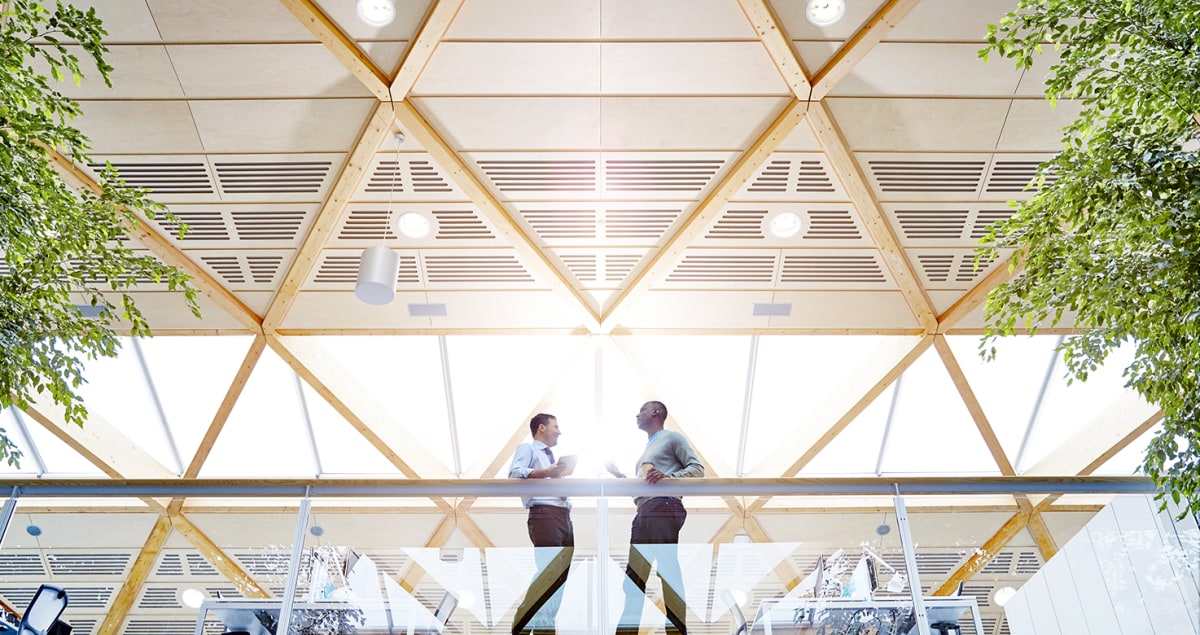Brokers should have an honest conversation with companies to establish what they need in the new world of hybrid work and make the best recommendations when it comes to real estate.
With the rise of hybrid working, whereby professionals are splitting their time between home, a central HQ and a local flexspace, employees are no longer coming together in a traditional Monday to Friday routine in a shared hub.
But, rather than undermining the value of a dedicated workplace, this actually increases the importance of having a network of offices, from a central HQ to local flexible workspaces. Crucially, they provide a real-world location for people to meet face to face, catch up and collaborate in ways they can’t by relying on video calls.
For brokers, it’s therefore imperative to understand the unique needs of every potential client – to understand their business, their plans for growth, how they will be using the workspace and what they want to achieve from taking on a new location. Here are five questions to help you to support your clients…
- What kind of business do you operate and how have you been affected by the pandemic?
Personalisation is integral to good service, so getting potential clients to open up about their company, the challenges they have faced during the Covid crisis and how they have been responding in terms of budget and staff management, for example, can bring about some open and honest dialogue.
Of course, companies vary in size and scale. Once you understand their needs you will soon realise that some will need a hub-and-spoke solution, while others will be better suited by using a local network of offices.
- What type of workstyles will you be looking to accommodate?
If employees are coming into an HQ or flexspace, then that usually means they will want to spend a portion of the day being sociable, having in-person meetings and brainstorming sessions. So, there is likely little demand for an office that has rows upon rows of desks. However, understanding the precise requirements of employees in a specific company will be key to choosing the right workspace and how it is fitted out.
The ratio of private versus communal space, for instance, will be important. Will they need sound-proof rooms for recording podcasts? Will they have a lot of freelancers wanting coworking areas? Or are they looking for a prestigious space with glass-walled executive rooms? Will teams be coming to sit around in an informal lounge and brainstorm, or will they need to duck out and do Zoom calls throughout the day? These are all things to take into consideration.
- How many team members will be using your workspace on a daily basis?
Hybrid working means teams won’t all be working in any one place all of the time. This has enabled a lot of companies to downsize their offices. However, some businesses are now experiencing a lot of growth and may well need workspaces that will accommodate increasing numbers of people over the coming months and years.
This can be hard to measure, so getting some insights into how potential clients see themselves expanding in the future is important. Incorporating flexible workspace into their real estate strategy will allow them to scale up or down in a way that is nimble and swift.
- Will you need more than one location?
Pre-pandemic, staff were expected to locate themselves within commutable distance of a city-centre office. But with the accelerated adoption of the hybrid model - employees need access to flexible workspace close to their homes.
Company HQs still have a role to play, even if they are scaled down. However, what might work better for some companies is a network of suburban flexspaces near where people live. Brokers need to find out what kind of footprint will best suit clients – for instance, a big multinational might be looking to develop a ‘hub-and-spoke’ model, whereby a central office is complemented by a series of satellite locations.
- What does hybrid working mean to you?
Hybrid working can be interpreted and implemented in many different ways, so find out what it means for your client. In some cases, they will have a strict requirement for staff to attend a company HQ on certain days of the week, while in other cases they will be renouncing a dedicated office altogether, in favour of ad hoc meetings at a shared flexspace a few times a month. The exciting thing is that there is a solution for everyone.
Hybrid working is undoubtedly here to stay, but it's important for companies to figure out how their day-to-day operations fit within this new world of work. Brokers can play a crucial role in helping both existing and new clients revise their real estate strategy to get the most out of their workspaces.
IWG has been helping brokers design sustainable corporate flexspace solutions for the last 30 years. Find out how it can support you today.






